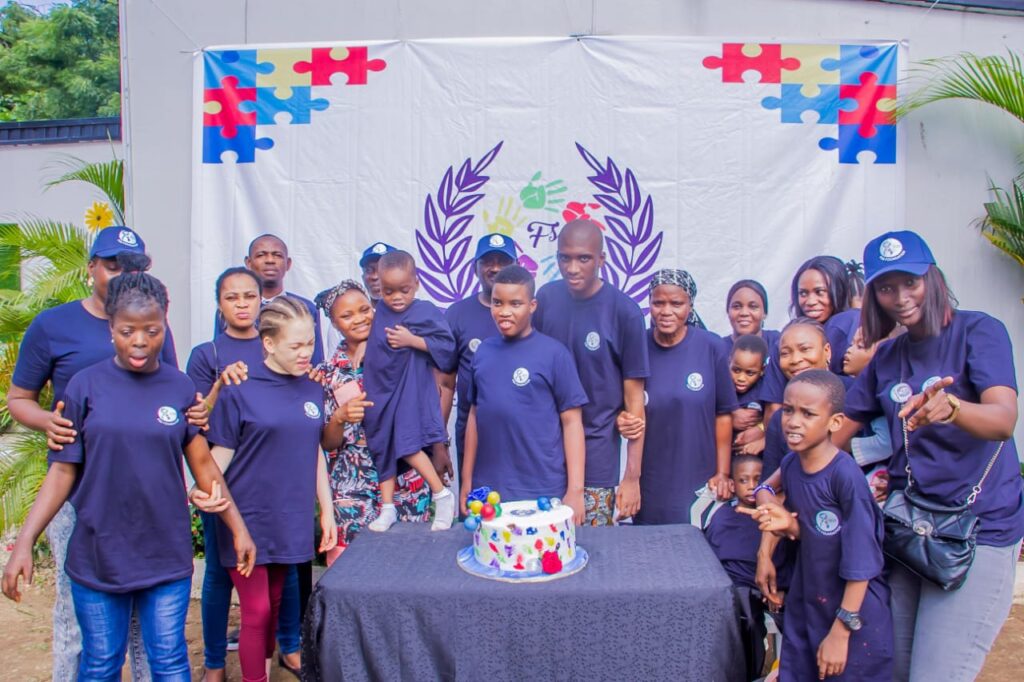The growing burden faced by parents and caregivers of autistic children took centre stage at the just-concluded FSS Foundation Fun Day of Art and Giving, as calls intensified for stronger support from government, private organisations, and the general public.
At the event held in Lagos, Mrs Adetutu Akonobi, mother of 19-year-old David Akonobi, shared her emotional story of struggle and survival while caring for her autistic son.
“David is 19 years old, and I still do everything for him because we have no access to therapy,” she said. “He’s supposed to be in school, but I can’t afford it. My husband abandoned us in 2015, and even my siblings turned their backs on me. Since then, I’ve been the only one caring for him.”
Akonobi’s story mirrors the daily reality of many Nigerian parents raising children on the autism spectrum — a life defined by financial strain, emotional exhaustion, and social isolation.
The event, organised by the FSS Foundation for Autistic Children, featured activities such as painting, beading, artwork, and sensory play — all designed to help autistic children express themselves and have fun in a safe, inclusive environment.
Speaking at the occasion, Ms Brook Eduok, Founder of the FSS Foundation, said the initiative aims to promote inclusion and show love to children who are often sidelined by society.
“Children living with disabilities face a lot of stigmatisation, isolation, and discrimination. Many are never invited to parties or special outings,” Eduok said.
“A child on the autism spectrum can be sensitive to light, sound, or touch. Our goal is to make them feel included and show that they are not alone.”
Eduok cited David’s case as one of many heartbreaking situations, saying that the foundation remains committed to advocacy and practical support despite limited funding.
“Autistic children need vocational centres and learning spaces. Many of them are already adults but still depend completely on their parents. Unfortunately, we are underfunded,” she noted.
She highlighted how the high cost of therapy remains a major barrier. “A single speech therapy session can cost as much as ₦200,000 monthly.
How can a parent struggling to feed afford that?”
Eduok compared Nigeria’s situation with countries like the U.S. and U.K., where parents of autistic children receive special allowances and access to therapy centres.
“In those countries, governments make provisions to support families. Here, parents are left to fend for themselves. Many Nigerians also act like it’s not their business,” she said.
“But these children deserve love and investment. If the government can commit even one per cent of its budget to special-needs support, it will change countless lives.”
Also speaking, Barr. Chika Ugokukwu, Founder of Flora’s Trust Centre, called for increased funding and awareness.
“Autistic children have complex needs requiring behavioural and occupational therapies, which are expensive but essential for their development,” she said. “We must invest in resources that help these children reach their potential — for their benefit and for the good of society.”
Eduok concluded with a passionate plea for empathy and inclusion: “Disability is expensive. We can’t keep ignoring these children. With the right care, even non-verbal children can speak. Elon Musk is autistic, and he succeeded because he had support. Nigerian children deserve the same chance.”















